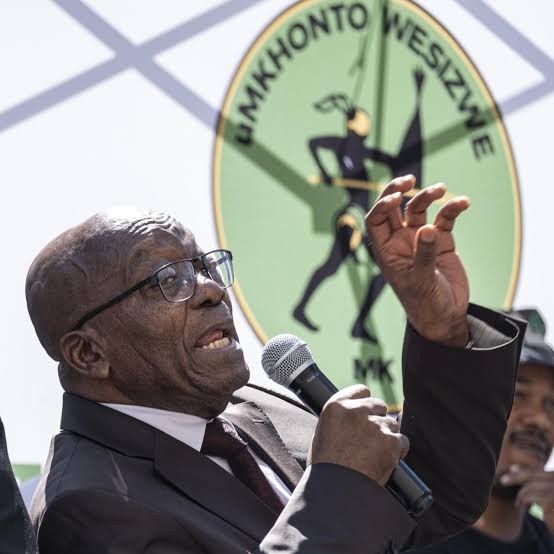S.Africa’s electoral body appeals Zuma case to constitutional court

South Africa’s electoral commission has taken the legal battle over the eligibility of former President Jacob Zuma to the highest court in the land, seeking clarity ahead of the general election scheduled for May. The commission’s decision, announced on Friday, comes amid heightened uncertainty surrounding Zuma’s candidacy and its potential impact on the political landscape.
In a statement, the electoral commission revealed that it had filed an “urgent and direct” appeal to the Constitutional Court, emphasizing the need for “certainty” regarding Zuma’s participation in the upcoming election. This move marks the latest development in a series of legal disputes surrounding Zuma’s eligibility to run for office.
The controversy stems from a recent ruling by the electoral court, which overturned the electoral commission’s initial decision to disqualify Zuma from the race due to a contempt of court conviction. Despite being sentenced to 15 months in jail in 2021, Zuma was released on medical parole after serving just two months of his sentence.
The electoral commission’s decision to seek clarity from the Constitutional Court reflects the significant public interest in resolving the interpretation of constitutional provisions relating to the candidacies of individuals with criminal convictions. By doing so, the commission aims to uphold the integrity of the electoral process and ensure that applicable constitutional principles are applied uniformly.
Moreover, the appeal is framed as a means to safeguard the principles of free and fair elections, rather than as an attempt to influence the political landscape. Nevertheless, Zuma’s potential candidacy has the potential to impact the outcome of the election significantly, particularly given his association with the newly formed opposition party, uMkhonto we Sizwe (MK).
With South Africa’s general election anticipated to be the most competitive since the country’s transition to democracy in 1994, Zuma’s involvement in the campaign could prove decisive. MK, leveraging Zuma’s popularity, poses a formidable challenge to the ruling African National Congress (ANC), potentially eroding its traditional support base and complicating its path to retaining power.
As the ANC grapples with declining approval ratings, compounded by economic challenges and allegations of corruption, the emergence of MK as a significant political force underscores the shifting dynamics within South African politics. Polls suggest that MK could secure double-digit support nationwide, particularly in key battleground regions such as KwaZulu-Natal, Zuma’s political stronghold.
Ultimately, the outcome of the legal proceedings and the electoral contest will shape the future trajectory of South Africa’s political landscape. As voters prepare to cast their ballots for a new parliament, the stakes are high, with the potential for significant repercussions on the country’s governance and direction.












